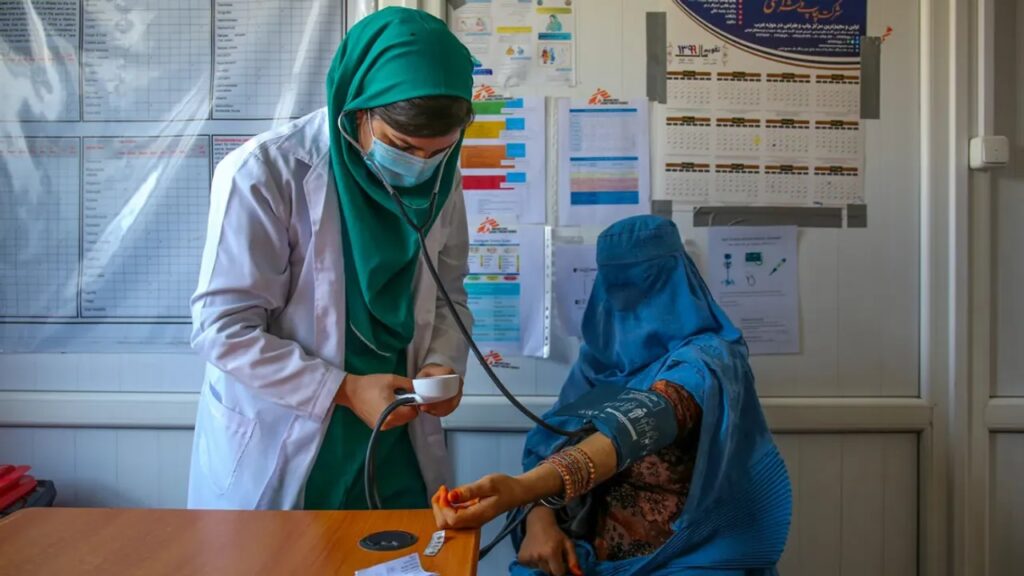No Female Doctors Graduated in Afghanistan in a Year

The healthcare crisis in Afghanistan has reached alarming proportions, particularly concerning the absence of female medics due to the Taliban’s ban on women’s education and work. This ban has exacerbated an existing problem, as Afghanistan has not seen a single female doctor graduate for over a year, contributing to some of the world’s most dire women’s health indicators.
The ban imposed by the Taliban has far-reaching consequences for the nation’s health sector. A Kabul Medical University lecturer expressed deep concern, stating, “Afghanistan has not produced a single female doctor for more than a year, and this is the worst thing that could happen to our health sector.”
The shortage of female healthcare professionals has been a persistent issue in Afghanistan, reflecting longstanding challenges in women’s access to education and professional opportunities. Even before the recent ban, the nation faced significant hurdles in producing female doctors, contributing to dismal women’s health indicators.
This critical situation is not only detrimental to the overall healthcare system but has severe implications for women’s health specifically. The absence of female healthcare providers limits women’s access to essential medical services, hindering efforts to address maternal health, reproductive care, and various gender-specific health issues.
The international community and humanitarian organizations must address this urgent healthcare crisis in Afghanistan. Efforts should focus on advocating for the reinstatement of women’s education and work opportunities, especially in the medical field. Additionally, providing support to female students pursuing medical education and creating safe environments for their training is crucial to rebuilding the healthcare workforce.
As Afghanistan grapples with these challenges, the global community must prioritize initiatives that empower Afghan women to contribute to the healthcare sector. Ensuring equal opportunities for education and work is not only a fundamental human right but also imperative for addressing the pressing health needs of the population, particularly in a country already facing significant health disparities.
Repurposed article originally published in ShethePeople









